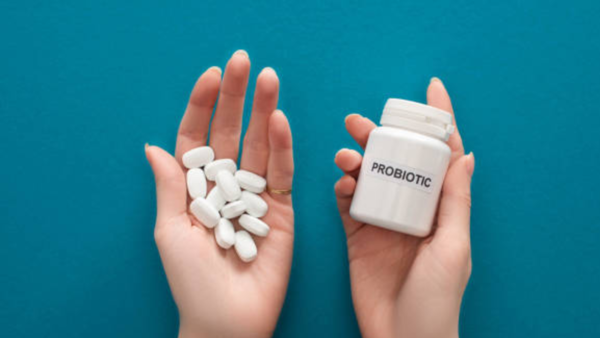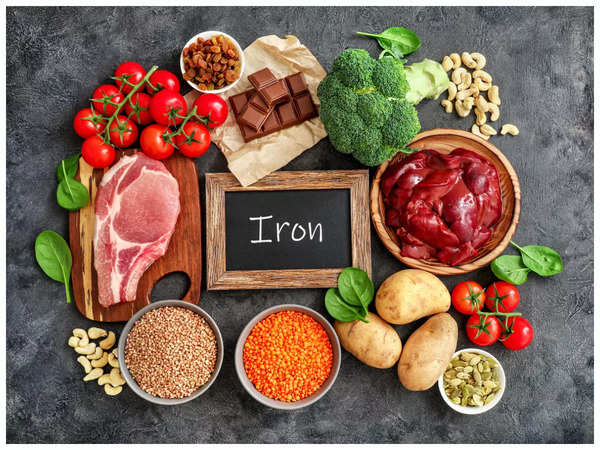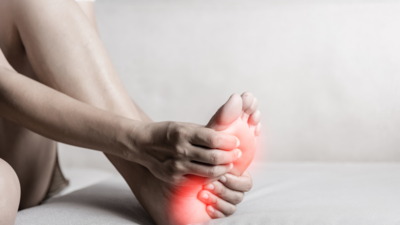- News
- lifestyle
- health-fitness
- health-news
- Over 57% men employees are vitamin B12 deficient: Why is it important to improve B12 level
Over 57% men employees are vitamin B12 deficient: Why is it important to improve B12 level
A silent health crisis is unfolding in India, as a recent study revealed. The survey found that over 57% of male corporate employees suffer from vitamin B12 deficiency, an important nutrient responsible for energy production, brain function, and red blood cell formation. Even among women, nearly 50% exhibit low B12 levels.
The study done by MediBuddy, analyzed data from 4,400 individuals (3,338 men and 1,059 women), highlights how urban professionals are at risk due to poor dietary choices, high stress levels, and erratic eating habits. The good news? Some changes in diet can help improve B12 absorption naturally. Here’s how we can boost our vitamin B12 levels with simple dietary modifications.
Increase intake of B12-rich foods

Vitamin B12 is primarily found in animal-based products, making it essential for non-vegetarians to include these in their diet. The best sources include:
- Eggs (especially yolks)
- Dairy products like milk, and cheese
- Poultry and fish, such as chicken
- Red meat and organ meats, such as liver and kidney
- If you’re a vegetarian, fortified foods can help fill the gap.
Go for fortified plant-based foods
For those who follow a vegetarian or vegan diet, naturally occurring B12 is harder to obtain. However, many foods are now fortified with B12, including:
- Fortified plant-based milk (soy, almond, oat)
- Fortified cereals
- Nutritional yeast (a great alternative for vegans)
- Including these in your daily diet can help prevent deficiencies.

Consume more probiotics for better absorption
Simply eating B12-rich foods isn’t enough; your gut health plays a major role in nutrient absorption. Poor digestion can hinder B12 absorption, leading to deficiencies even if your diet is adequate. Include probiotic-rich foods such as:
- Curd and yogurt
- Fermented foods like idli-dosa batter
- Pickles
- A healthy gut ensures that the body absorbs B12 more efficiently.
Reduce processed and junk foods
Excessive consumption of junk food, aerated drinks, and highly processed foods can damage the gut lining and negatively impact B12 absorption. High sugar and preservative content in these foods can lead to poor digestion and low nutrient uptake. Replacing them with whole foods, fresh vegetables, and home-cooked meals can significantly help.

Add more iron and folate-rich foods
Vitamin B12 works hand-in-hand with iron and folate to support red blood cell production. A deficiency in one can impact the other. To enhance B12 utilization, include:
- Leafy greens like spinach and fenugreek
- Lentils and beans
- Beetroot and pomegranate
- Seeds and nuts like flaxseeds and almonds
- A well-balanced diet with these nutrients ensures better overall absorption.
Consider B12 supplements if necessary
If dietary changes alone aren’t enough, supplements may be necessary, especially for those with severe deficiencies. It’s best to consult a doctor for:
- B12 tablets or capsules
- B12 injections for severe cases
- Multivitamins with B12
Regular check-ups and blood tests can help monitor B12 levels and determine if supplementation is required.

Why is vitamin B12 important?
Vitamin B12 has a very important role in several bodily functions, including:
- Energy production: Helps convert food into usable energy.
- Brain function: Supports cognitive health, memory, and mood regulation.
- Red blood cell formation: Prevents anemia and maintains oxygen transport in the body.
- Nerve health: Aids in the maintenance of nerve cells and prevents neurological disorders.
A deficiency can lead to fatigue, dizziness, nerve damage, memory issues, and even depression.

What is the recommended daily intake of vitamin B12?
The recommended daily intake varies by age and lifestyle factors:
- Adults: 2.4 micrograms (mcg) per day
- Pregnant women: 2.6 mcg per day
- Breastfeeding women: 2.8 mcg per day
- Elderly individuals: May need higher intake due to reduced absorption
- Vegetarians and vegans may require additional supplementation due to limited dietary sources.
Increase intake of B12-rich foods
Vitamin B12 is primarily found in animal-based products, making it essential for non-vegetarians to include these in their diet. The best sources include:
- Eggs (especially yolks)
- Dairy products like milk and cheese
- Poultry and fish, such as chicken
- Red meat and organ meats, such as liver and kidney
- If you’re a vegetarian, fortified foods can help fill the gap.
1. Energy levels: Imagine the days when you want to conquer the world and the days when your demovitated to do basic task !Here's what keeps you going with energy levels up .Vitamin B12 -Absolutely necessary for the production of red blood cells, which carry oxygen throughout the body, providing energy.Deficiency may lead to fatigue and weakness.2. Healthy Nervous system: our nervous system carries out all intricate functions right from breathing to digestion ,growth and development. Optimum Vitamin B12 is required for the synthesis of myelin sheath , the fatty substance that surrounds and protects nerve fibers, enabling proper nerve function.Deficiency may lead to Numbness or tingling in hands and feet Digestive issues, such as diarrhea or constipation.3. Our blue print - DNA : Vitamin B12 is needed for synthesis of DNA, the genetic material that contains the instructions for cell growth, development and carrying forward genetic traits.4. Homocysteine and healthy heart: Homocystine is an amino acid linked with risk of cardiovascular disease when levels are elevated . Vitamin B12 helps regulate homocysteine levels in the blood. Deficiency may start symptoms like Shortness of breath dizziness and lightheadedness.5. Happiness quotient: Sleep wake cycle ,happy mood ,hunger ,satiety are all regulated by neurotransmitters, Vitamin B12 plays a role in the synthesis of neurotransmitters, such as serotonin and dopamine. Deficiency may lead to mood changes, such as depression or anxiety.











